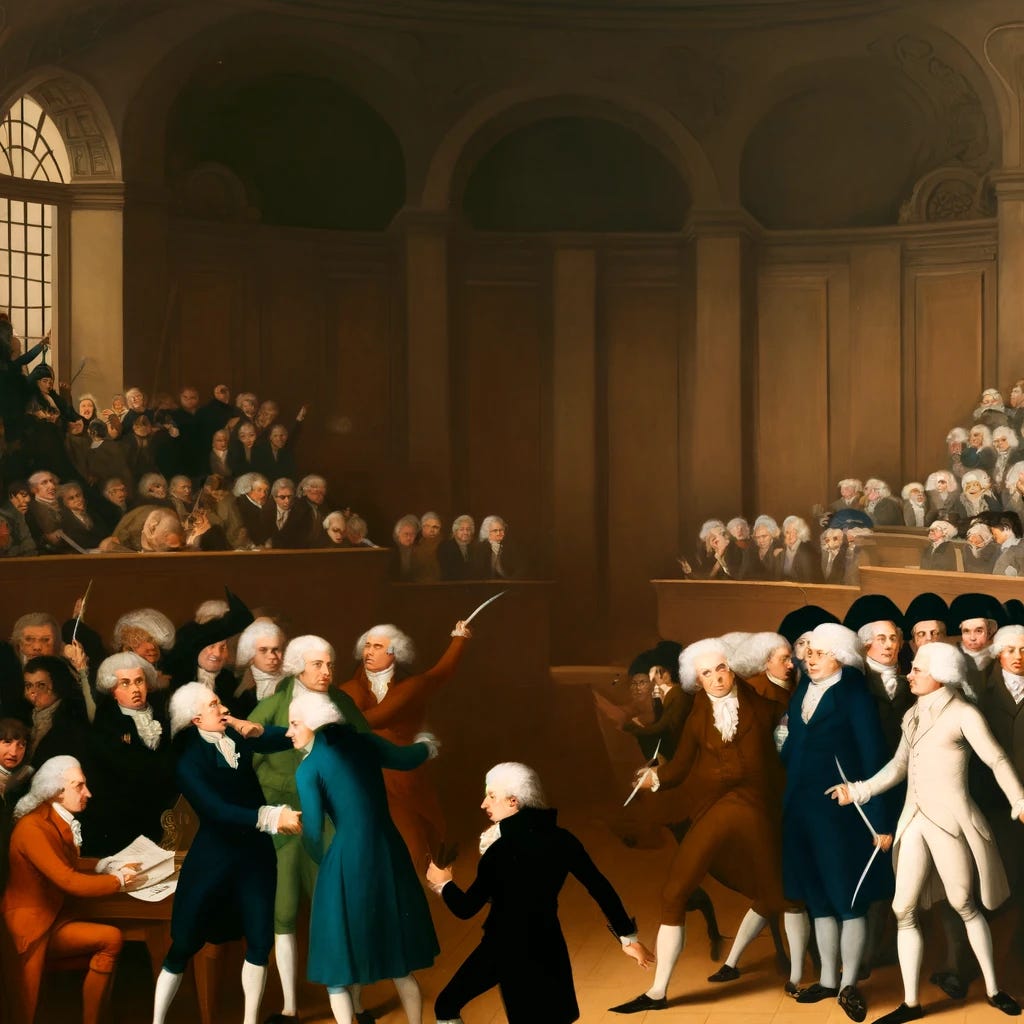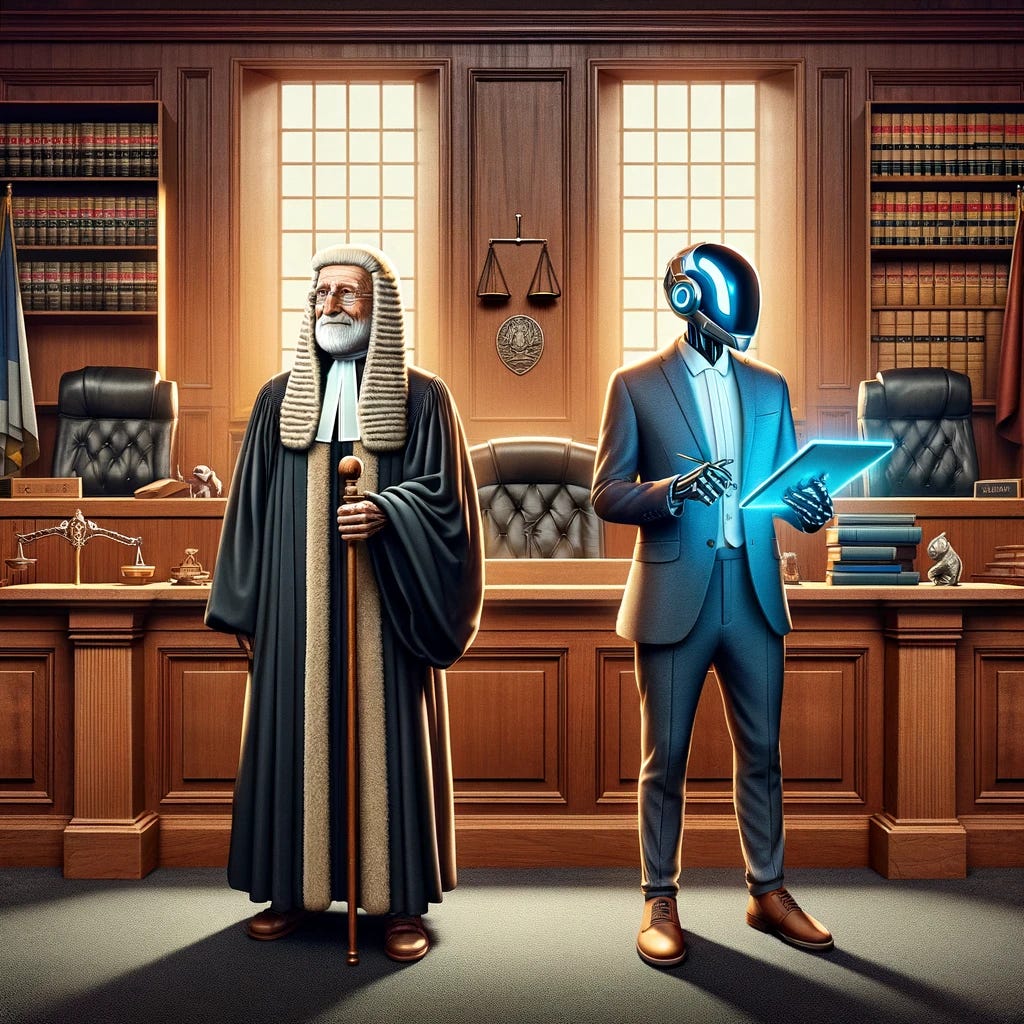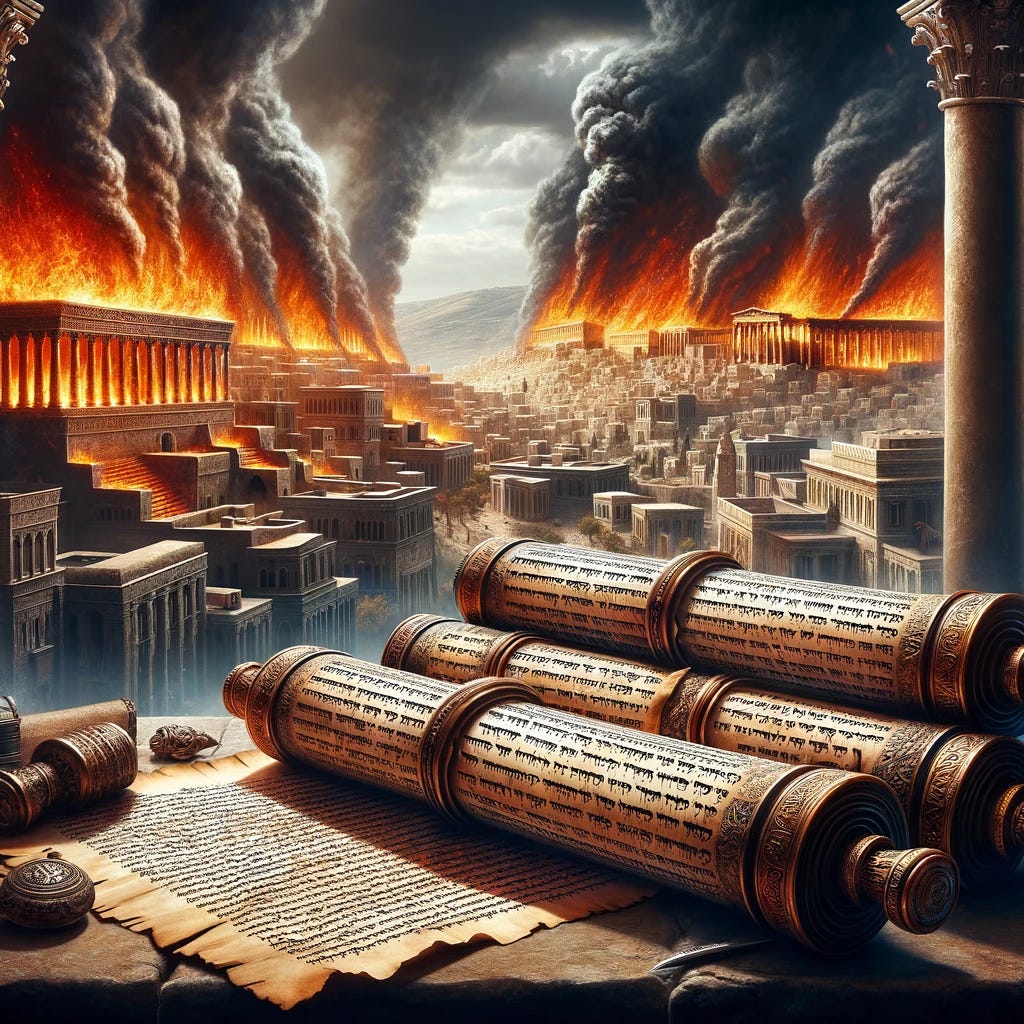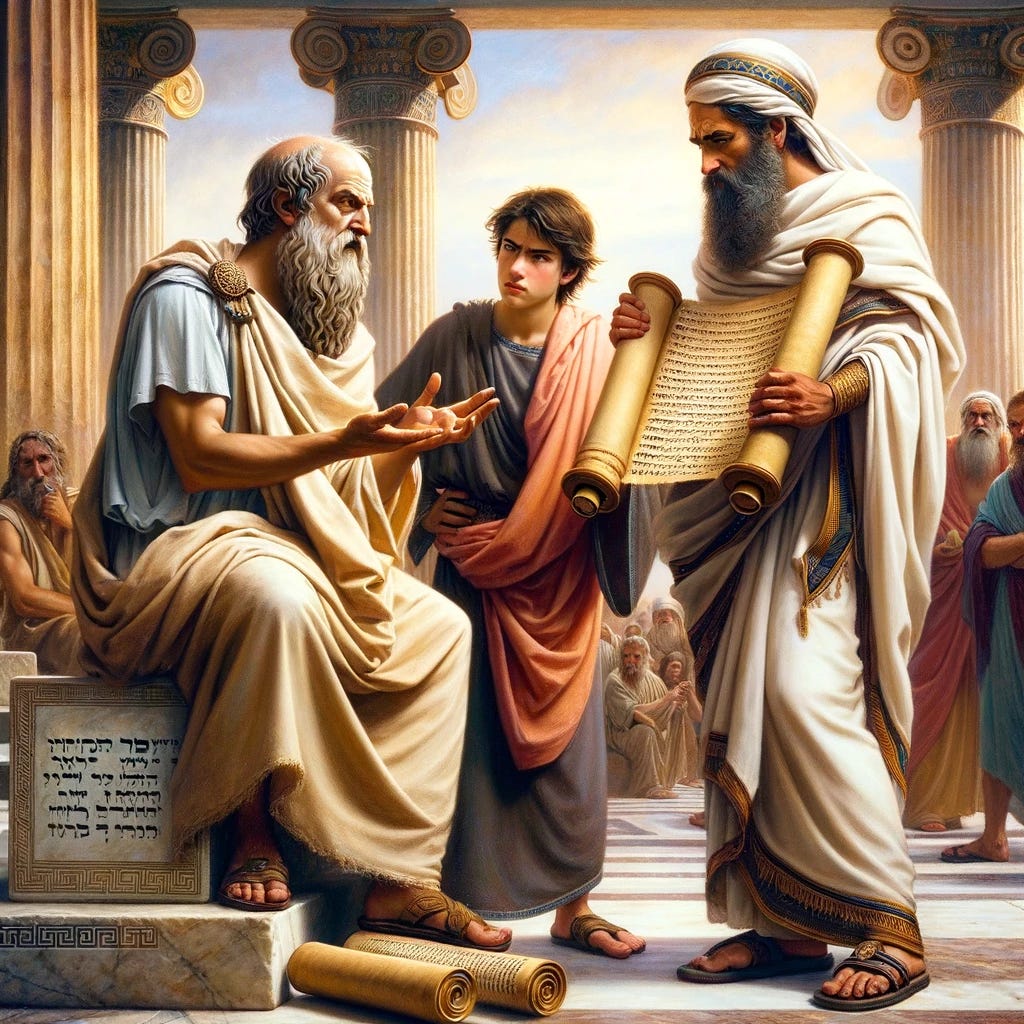The terms "left" and "right" developed in the context of French politics, and specifically trace their origins to a pivotal moment during the French Revolution of 1789 within the National Assembly. This historical setting provides a foundational understanding for the modern political spectrum.
Or does it? It does, in part…but let’s save that for a bit.
In the French National Assembly, members were tasked with drafting a new constitution, and they naturally divided themselves based on their political ideologies. Those who supported the king and sought to preserve traditional institutions, such as the monarchy and aristocracy, seated themselves to the right of the president of the assembly. This group comprised mainly conservatives and reactionaries. Conversely, those who advocated for more radical changes, including the establishment of a republic and the reduction of aristocratic privileges, chose to sit to the left. This faction consisted of revolutionaries and reformers.
This physical seating arrangement gave rise to the political terminology we use today. The "left" came to symbolize progressive, liberal, and radical ideas, while the "right" became synonymous with conservative and traditionalist values.
As the 19th century unfolded, the labels "left" and "right" persisted through various French governments and assemblies, including the Restoration, the July Monarchy, and the Second Republic. During this period, the left typically championed secularism, social equality, and expanded suffrage, while the right defended the church, monarchy (where applicable), and property rights.
Throughout the 20th century, the ideological distinctions between left and right in France evolved, encompassing a broader range of political thought, including socialism, communism, and various forms of liberalism and conservatism. In contemporary French politics, the left is generally associated with socialist, environmentalist, and social-democratic parties, whereas the right aligns with conservative, liberal, and sometimes nationalist parties.
The adoption of "left" and "right" as descriptors of political ideologies has since become a global convention, but their origins as nomenclature are firmly rooted in this specific historical context of the French Revolution. However, these ideals did not originate in France. The division is basic and foundational to the human condition.
There has always been a tension between those who seek order rooted in transcendence and those who seek to maximize human agency through the liberation from any unchosen bonds, enforced by a wholly human authority. The former is traditional, hierarchical, and rooted in honor and dignity. The latter is progressive, egalitarian, and rooted in managerialist assumptions. The former is local (national), and the latter is cosmopolitan. None of this originated in France, and anyone who tells you such is mistaken at best or more likely selling liberal assumptions.
The classical Greek philosophers grappled with the tensions between what can now be called “rightist” values (localism, traditionalism, transcendence/religion, and hierarchy) and “leftward” values (cosmopolitanism, progressivism, and maximizing human agency), laying the groundwork for much of Western political thought. Their differing approaches to these themes illustrate the eternal struggle between these competing values.
On the “right”, Plato often emphasized the importance of a well-ordered society based on traditional values. In his work "The Republic," he envisioned an ideal state with a rigid class structure where individuals performed roles suited to their nature, reflecting a hierarchical worldview. Plato also introduced the concept of the Forms, transcendent ideals that represented the truest reality. This notion underscored a belief in a higher, immutable order that humans should strive to understand and embody. His philosophy intertwined with religious and mystical elements, emphasizing the role of philosopher-kings who could access these higher truths. Plato’s “forms” could be seen to be esoteric code for divine laws.
Plato’s disciple, Aristotle, valued the polis (city-state) as the fundamental unit of political life. He believed in the significance of local customs and governance, arguing that a good life could only be achieved within a community that shared common values and traditions. Aristotle's concept of natural hierarchy placed individuals in different social roles based on their abilities and virtues. He argued that some people were naturally suited to rule, while others were destined to be ruled, reflecting his endorsement of a structured and hierarchical society. This strikes some as odd today, yet experience shows it to be true.
However, there were dissenting voices coming from what we’d now call the “Left”. Diogenes and the Cynics rejected conventional values and social norms, advocating for a life in accordance with nature and reason. Diogenes famously declared himself a "citizen of the world," rejecting localism and traditional social structures in favor of a universal, cosmopolitan identity. Cynicism emphasized self-sufficiency and personal freedom from societal constraints, promoting the idea that individuals should live virtuously according to their own reasoned judgment rather than conforming to societal expectations. This encouraged one to be a “law unto himself”, predating Nietzsche by millennia.
Similarly, Epicurus focused on achieving personal happiness and tranquility through rational understanding and the pursuit of moderate pleasures. He argued against traditional religious superstitions and advocated for a more scientific and empirical approach to understanding the world. Although Epicurus founded his own school, his teachings appealed to a broader audience and promoted the idea of a universal human community united by the pursuit of happiness and rational inquiry. This proceeded the widespread use of “cosmopolitanism” also by millennia.
In his later work, "Laws," Plato offers a more pragmatic and detailed approach to addressing the perennial tensions between localism, traditions, transcendence (religion), and hierarchy versus cosmopolitanism, progressivism, and maximizing human agency. Moving beyond the idealism of "The Republic," "Laws" is Plato's blueprint for a functional city-state, rooted in a conservative framework that prioritizes stability and order over radical change.
Plato emphasizes the necessity of a comprehensive legal code to maintain societal order. He advocates for laws that embody the customs and traditions of the community, grounding the state in a shared set of values and practices. This legal framework is designed to preserve traditional social structures and cultural heritage, highlighting the importance of continuity and stability over upheaval.
Education plays a central role in Plato's vision. He proposes a rigorous system that inculcates traditional values and virtues from a young age, fostering a sense of communal identity and shared purpose. Cultural practices, religious rituals, and festivals are integrated into the legal structure to reinforce these traditions and promote social cohesion.
Religion is integral to Plato's legal and moral framework. He argues for the incorporation of religious observances into the daily life of the state, positing that piety and reverence are essential for maintaining moral and social order. The laws mandate religious rituals, sacrifices, and the construction of temples, ensuring that religious practices are upheld and respected. For Plato, religion serves as a tool for moral education, intertwining with the legal system to cultivate virtuous citizens. He believes that the fear of divine retribution and the hope for divine favor motivate adherence to the laws and ethical behavior, reinforcing the moral fabric of the society.
The Bible, particularly in its foundational texts from the Old Testament, predominantly advocates for a societal framework that aligns with many principles found in the political philosophies of Plato and Aristotle. This alignment can be observed through the Bible's emphasis on tradition, hierarchy, localism, and the integration of religious transcendence into the governance and moral structure of society. Here are some key aspects of how the Bible reflects a rightist perspective similar to the ideas of Plato and Aristotle.
The Old Testament, especially in books like Leviticus and Deuteronomy, provides a legal framework that informs various aspects of life, from moral conduct to social behavior. These laws are intended to maintain order and stability within the Israelite community, much like Plato’s legal framework in "Laws." The Ten Commandments offers a foundational set of moral imperatives that underpin societal order, emphasizing the importance of a stable, law-abiding community.
The Bible places a strong emphasis on the preservation of traditions and customs. Many laws and rituals are designed to commemorate historical events and reinforce a shared identity among the people of Israel. Festivals such as Passover and practices like the Sabbath serve to maintain cultural continuity and a sense of historical connection, similar to how Plato integrates cultural practices into his legal framework to foster social cohesion.
This is in contrast to the continual desire of the “progressives” who sought to continue to offer “high place” worship that was freer in form, or like the “strange fire” of Nadab and Abihu. The progressive desire to be a “law unto thyself” is not new.
The Bible often endorses a hierarchical structure with divinely appointed leaders, such as kings, priests, and prophets. The concept of kingship is central, with figures like David and Solomon depicted as God’s chosen rulers who are responsible for maintaining justice and order. This mirrors Aristotle’s belief in natural hierarchy and Plato’s notion of philosopher-kings, where certain individuals are naturally suited to rule due to their wisdom and virtue.
The Bible integrates religious observance with legal and moral codes, suggesting that divine commandments form the basis of just laws. The Mosaic Law is seen as divinely revealed, and adherence to it is considered both a legal and spiritual obligation. This echoes Plato’s belief in the importance of religion in maintaining moral order and Aristotle’s view that the polis should cultivate virtue among its citizens through a shared ethical framework.
The Bible emphasizes the notion of the Israelites as God’s chosen people with a unique destiny and tribal relationship to a specific land—the partitioned Promised Land (specifically before the deportation to Babylon). This localism underscores the importance of a distinct national identity and territorial integrity. This aligns with Aristotle’s emphasis on the polis as the essential unit of political life, where a well-defined community with shared values and a common territory is crucial for achieving the good life. Geography was integral to order, as it impacted the common experiences necessary to hold a society together.
Biblical laws and rituals are designed to foster social cohesion and a sense of belonging among the Israelites. The detailed prescriptions for worship, diet, and social conduct create a strong communal identity. Plato’s "Laws" similarly integrates rituals and educational practices to reinforce a shared cultural heritage and social unity within the state.
While the terms "right" and "left" originated within the French Revolution's National Assembly, the philosophical clash they denote is as ancient as civilization itself. At its core, this dichotomy represents the tension between conserving established traditions and societal structures versus advocating for progress and individual agency. Throughout history, the right has sought to preserve the accumulated wisdom of the past, arguing that societal stability, order, and continuity are paramount for the flourishing of civilization. This perspective values the role of established institutions, hierarchical structures, and communal norms in maintaining social cohesion and guiding human behavior.
From the earliest days of organized society, such as in ancient Greece, this clash was evident in the philosophies of thinkers like Plato and Aristotle, who emphasized the importance of a well-ordered society grounded in tradition and hierarchical governance. They argued that only through a structured social framework could individuals achieve their full potential and society as a whole prosper. Similarly, religious texts like the Bible have reinforced these principles, advocating for a divinely inspired order that underscores the importance of law, tradition, and communal values. These philosophical and religious traditions underscore the belief that human nature requires the guidance of established norms and structures to prevent chaos and moral decay.
On the other side of the spectrum, progressivism and cosmopolitanism challenge these traditional views, advocating for the liberation of the individual from the constraints of established norms. While this perspective has its roots in the Enlightenment and modern democratic movements, its foundational ideas can be traced back to ancient philosophies that emphasized human agency, reason, and the potential for societal improvement. However, from a rightist viewpoint, such unrestrained progressivism risks undermining the very foundations of society, leading to instability and the erosion of shared values. The enduring clash between these perspectives reflects a fundamental debate about the best way to organize society and the role of tradition and authority in guiding human conduct.
Transcendent and ultimately Christian order has always been at war with individuated materialist chaos. It is not new, and don’t buy the lie that it is.







What is the significance of pairing "leftward" and "rightist" but not using "leftist / leftism?"
For alternative view, which does trace things back to late-18th-century France, see my "Conservatism in Relation to Perennial Political Wisdom," https://pomocon.substack.com/p/conservatism-in-relation-to-perennial?utm_source=profile&utm_medium=reader2 which is heavily based on an essay by Harvey Mansfield with the title of "A Plea for Constitutional Conservatism."
The key is seeing that what conservativism seeks to conserve is a workable form of modern democracy. A monarchist, for example, is not the same thing as a conservative.
What you've done in this essay works out well enough, and it reminds me that I need to learn more about the Cynics, and the Canaanite religions, but you are not going to be able to go back and categorize a.) all religions and religious sects, b) all philosophies, c) all political factions, whether the ones in monarchical court-life or in republican debate, as belonging to either Left or Right.